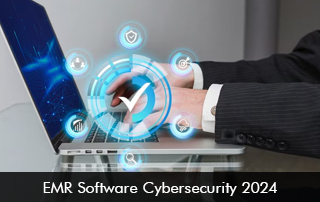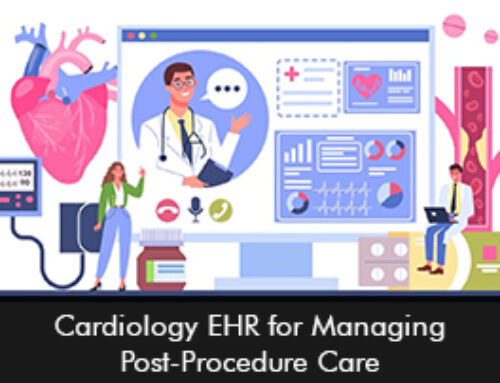Establishing resilience against cyber threats and crimes is one of the top priorities of both providers and software vendors. Electronic Medical Records (EMR) Software vendors have proactively offered advanced security features and solutions in cloud technology, regular security updates, etc.
EHR Software contains sensitive personal health information about medical history, diagnosis, and treatment. Keeping PHI secure will enable patients to trust healthcare organizations against many cybersecurity threats.
Main Types of Cybersecurity Crimes
EMR systems store sensitive and confidential patient health information, making them an appealing target for cyber threats. Some of the most serious cybersecurity vulnerabilities to EMR software data include:
- Unauthorized Access
- Ransomware Attacks
- Data Breaches
- Insider Threats
- Phishing Attacks
- Malware Infections
- Third-Party Vulnerabilities
Cybersecurity breaches have cost healthcare organizations an average of $10.1 million each during 2022. Therefore, a proactive approach needs to be taken when it comes to patient data security and protection.
How can EHR Software offer Robust Cybersecurity in 2024?
In 2024, EMR software vendors will invest more in securing their systems through security evaluations, regular audits, and the use of industry-standard security standards to protect the software system from potential vulnerabilities.
Encryption Techniques
Encryption techniques are used by EHR Software systems to safeguard data while it is in transit and at rest. By transforming patient information into unintelligible code that can only be viewed with the right decryption key, data encryption helps protect it from unwanted access.
Access Control and Authentication
Role-based access control ensures that only authorized workers with certain roles can access specific areas of the electronic medical records software. By demanding more than just a password for access, multi-factor authentication offers an extra degree of security.
Software Updates
Top-ranked EMR Software vendors such as athenahealth EMR Software, AdvancedMD Software, and Tebra Software release regular software updates to improve the security of the software system. The regular updates protect the software from getting hacked or being exposed to cyber threats.
Audit Trails and Monitoring
To track user activity within the system, Electronic Health Records Software keeps thorough logs and audit trails. Continuous monitoring and analysis of these logs can aid in the identification of suspicious behavior or potential security breaches.
Blockchain Technology and Healthcare Cybersecurity
Blockchain technology offers a safe and unchangeable platform for patient data management, which presents enormous potential to improve cybersecurity in the healthcare industry.
Data integrity is guaranteed by blockchain’s decentralized design and cryptographic methods, which guard against unwanted access, alteration, or destruction of private medical records.
Blockchain networks with smart contracts allow agreements to be executed automatically and securely, simplifying procedures and adhering to privacy laws such as HIPAA.
Moving Ahead
Software providers should combine the aforementioned security measures in 2024, as well as regularly upgrade their solutions and adjust to new threats. EMR software can provide strong data security to safeguard confidential patient data.
Preserving data security is a continuous process that calls for alertness, frequent evaluations, and a hands-on cybersecurity strategy.







